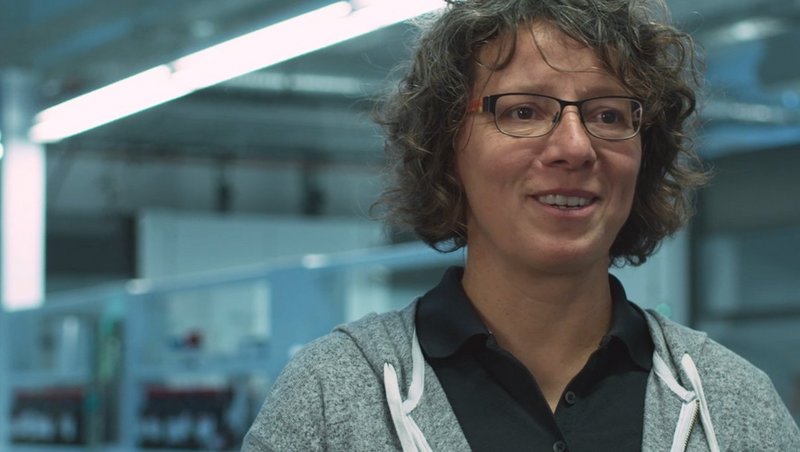Developing a dandelion tire
My job is done when tires are sustainable by nature.
Name: Carla Recker
Fields of Study: Chemistry
Current Position: Material expert
Start at Continental: 1995
When Carla joined Continental in 1995, it was quite difficult for chemists to find a job at all. Today, she and her colleagues are in high demand as experts. "We're always looking for the unusual," says the materials expert about her job on Continental’s Taraxagum Material Rubber project. Carla works in material development for tires – but not just any material. She focuses on dandelions, which are grown locally in Germany and can be used to produce natural rubber.
"At the beginning of the project, many people smiled at us," Carla remembers, noting that the idea wasn’t easy in the beginning. However, the first prototype is now available and it’s clear that this new approach can be a viable alternative in tire production.
"The tire market is growing and we assume that we will increasingly need natural rubber to be able to respond to short-term changes in demand," explains Carla. Conventional natural rubber has a production lead time of seven to eight years and requires that a plantation be designed for a period of 30 years. Dandelions, on the other hand, only need one year. The project is not yet complete, but Carla's vision for the future is clear. "We will have a factory where dandelion rubber is produced that we can use for our tires.”
Does this topic also inspire you? Then the following video will give you further insights into Carla’s project. You can also take a look at all open positions in Research and Development in our Job Portal.
Sustainability: Making the World a Better Place to Live
Tires with a second life or electric vehicles: we research new possibilities every day to make our products as environmentally friendly as possible. Get some insights into the possible tasks around sustainability by listening to our colleagues directly:




